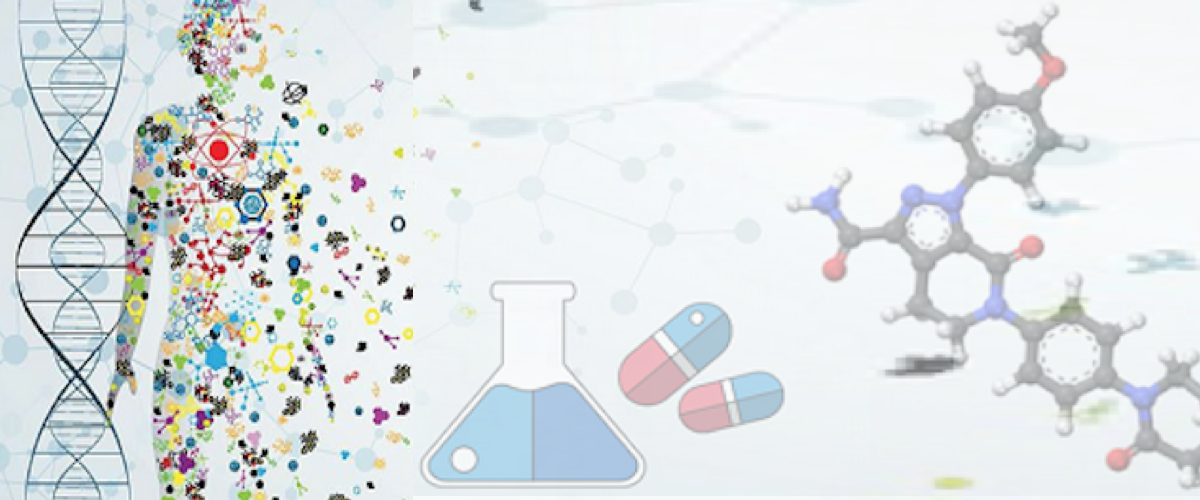PMM Pharmacogenomic (PGx) Services
PMM’s GeneDose PGx reports deliver actionable insights and interpretations of clinical laboratory pharmacogenomic results. GeneDose PGx reports evaluate genetics in concert with other medication-associated risks to improve patient health to provide a complete, personalized picture of medication safety. Take advantage of the fact that genetics doesn’t change over a patient’s lifetime to address issues of polypharmacy, medication efficacy, peri-operative care, and pain management.
GeneDose: Comprehensive Polypharmacy Interpretation & Reporting
Born from the personalized medicine research study at the Coriell Institute for Medical Research where the landmark, peer-reviewed PhAESIS process for evidence evaluation was created, GeneDose PGx Reports provide comprehensive, clinically-relevant and scientifically-rigorous results for pharmacogenomic and medication safety reporting.
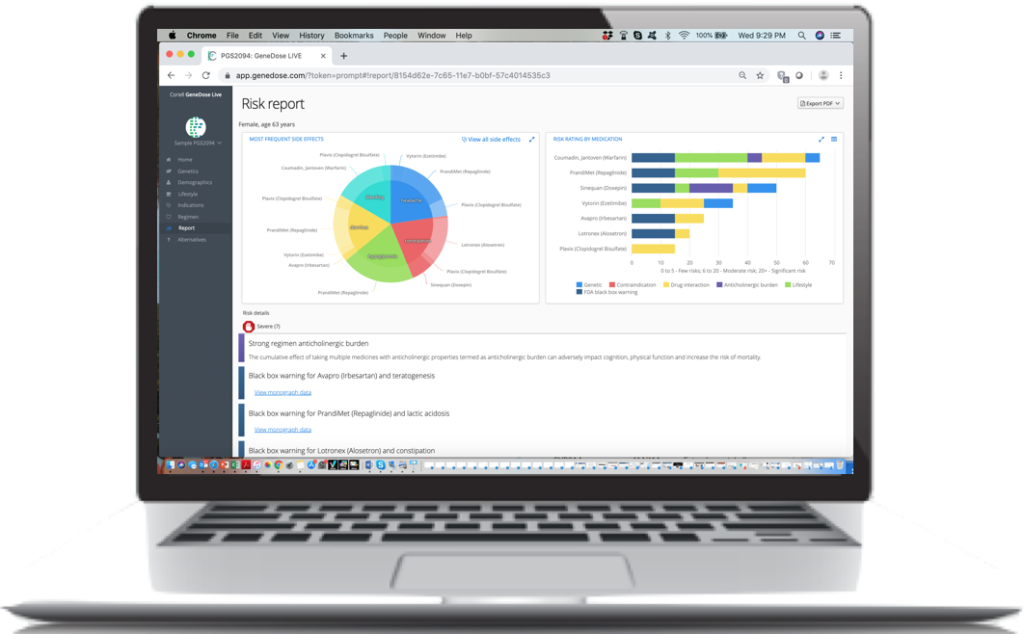
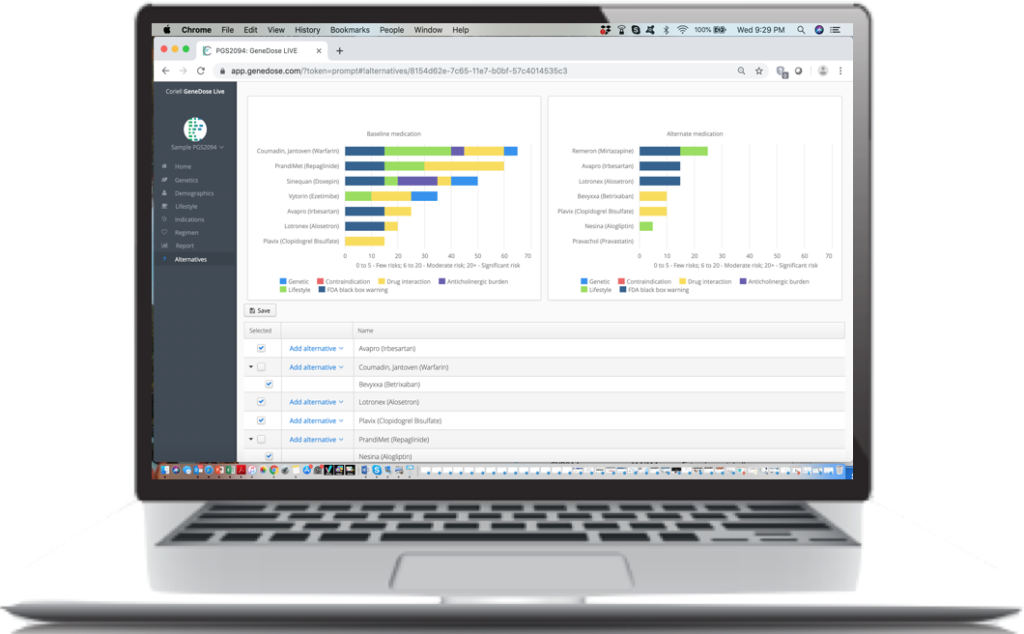
Real-Time Prescriptive Alternative Rx Modeling
GeneDose PGx reporting goes well beyond simply providing a static document to physicians by supporting the GeneDose LIVE real-time medication decision support and modeling too. Quickly see which medications are wrong for patients and audition alternatives for safer therapy, all in real time. GeneDose LIVE provides risk analysis of non-genetic factors. Lifestyle, drug-drug interactions, age-related risks, FDA warnings, and more are assessed in real-time.
Opioid Appropriateness Reporting
To appropriately address clinical pain management, PMM tackles the issues of medication safety, efficacy, and Opioid Use Disorder predilection in a single, actionable report, comprised of:
- Analgesic Appropriateness Report – determine the most appropriate pain medication, opioid or not, for an individual, based on their DNA
- Addiction Predilection (AP) Score – receive a quantitative measure of a patient’s likelihood of developing Opioid Use Disorder
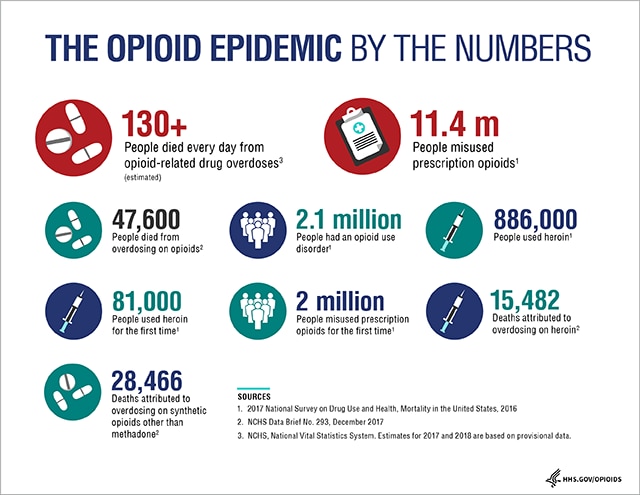
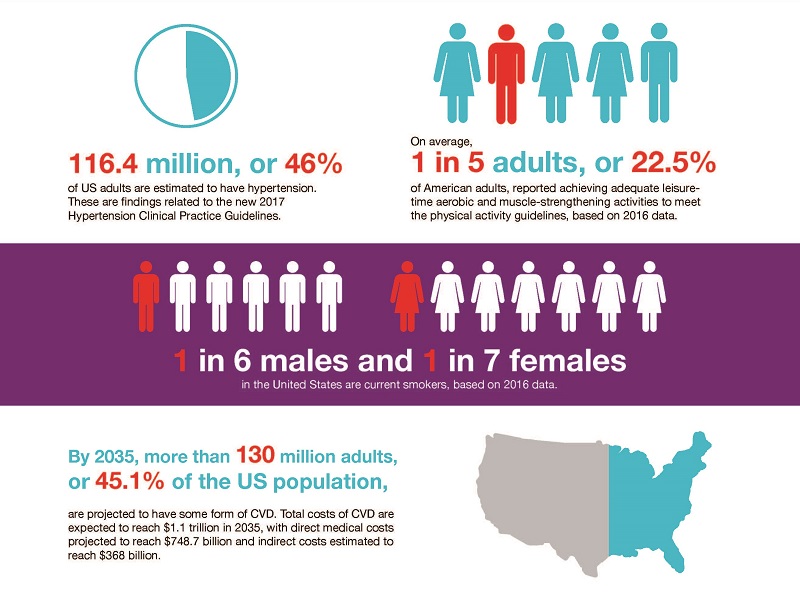
Cardiology Medication Appropriateness Reporting
Perfect for cardiologists and primary care physicians, GeneDose Live enables comprehensive analysis of a patient’s medications at the point of care to help clinicians determine which are best suited for a given patient. Risks associated with polypharmacy in the cardiac patient include drug-drug interactions, anticholinergic burden, age- and pregnancy-related concerns, FDA warnings, food and drink interactions, and genetics. Improving a patient’s treatment plan decreases hospital and emergency department visits, decreases healthcare costs, and improves their quality of life.
Behavioral Health Medication Appropriateness Reporting
This GeneDose PGx report takes a comprehensive look at medications used to treat depression, anxiety, ADHD, and other psychiatric health concerns and provides recommendations guided by an individual’s pharmacogenomic profile.
Anti-ADHD Medication Appropriateness Reporting
This GeneDose PGx report provides recommendations for, and against, the use of specific ADHD medications, based on the patient’s DNA. Decrease the time to getting these important therapies correct.
Malignant Hyperthermia (MH) Report
Available alone or as part of the Perioperative Medication Appropriateness Report, this GeneDose PGx – MH report details a patient’s genetic predisposition to malignant hyperthermia and suggests the classes of anesthetics that would be most safe and appropriate.
Cannabinoid Receptor Report
Results from certain CNR1 & 2 gene SNP variants can be reported. No clinically-relevant, outcomes based on interpretations are yet provided.

PMM’s GeneDose Live delivers actionable reports and interpretations of clinical laboratory infectious disease and antibiotic resistance testing. The Infectious Disease Report interprets semi-quantitative laboratory assays of pathogenic microorganisms and, in concert with antibiotic resistance testing, provides antibiotic treatment options. Infectious Disease Reports provide a list of useful medications to aid in decision support and rapid treatment of UTI, skin, fungal, and respiratory infections.
Women’s Health Interpretation & Reporting
The comprehensive Women’s Health Report provides a differential diagnoses of Bacterial Vaginosis (BV), Yeast Infection*, and Trichomoniasis (Trich) Infections* with increased specificity and sensitivity2. Treatment options based on diagnosis, history of recurrence, and pregnancy status are included to assist in rapid prescription decision making. This report can also include Anaerobic Vaginosis (AV) and Sexually Transmitted Infections (STIs)*.
*Also available for men.


Urinary Tract Infection Reporting
Culture methods are slow and even unavailable for some microbes. This molecular diagnostic report provides identification of pathogenic organisms to guide rapid therapeutic decisions in the clinic. Further reporting on the presence of antibiotic resistance genes in the sample guide improved, personalized treatment.
*Also available for men.
Respiratory Pathogen Testing
This diagnostic assay can quickly diagnose multiple respiratory ailments including SARS, pneumonia, and TB from a single sample.
*Also available for men.
Wound Healing Reporting
This report looks at the microbiome of hard-to-manage wounds; especially prevalent among elderly and diabetic patients. In addition to evaluation of the wound itself, the report provides insight into issues of antibiotic resistance. The resulting diagnostic report includes recommendations for medications for treatment decision-making.
PMM – Worksite Wellness Solution
A scientifically validated wellness solution for the workplace. Our science and clinical outcomes combined with best in class decision support software has the power to change behavior and engage employees unlike anything else in market.
We use targeted genetic treatment and predictive analytics for pharmacy optimization and healthcare savings. We improve the lives of employees and their families while saving employers and employees millions in the process.
Our PMM Worksite Wellness Solution provides self-insured employers and managed care organizations a better way to optimize prescription drug costs by combining member and provider engagement with value based pricing. We determine multiple ways to save on medications while engaging employees or members with specific savings opportunities.
PMM Worksite Wellness provides an advanced risk analysis for employees who are dealing with health issues and complex medication regimens. Our solution optimizes an employers pharmacy costs and reduces the pharmacy spend while providing a personalized medication management platform to ensure medication efficacy, safety, dosing, and the combinations of drugs.
By providing the ultimate Comprehensive Medication Risk Management and personalized care plans we are able to mitigate the risks and costs associated with unnecessary medical expenses. PMM Worksite Wellness is focused on optimization of your pharmacy plan but assisting and managing an employers’ medical spend. We measure success by the improvement of a populations overall well-being while providing quantifiable savings on behalf of the organization.
Comprehensive Medication Risk Assessment and Management
Products and services are built around our Medication Risk and Therapy Management. PMM enables optimization of a patient’s medication regimen by combining clinical and pharmacology informatics, population-based data, medication metabolism and extensive patient-specific information to deliver precision medicine.
- Genetic metabolism factors
- Genetic adverse reactions
- Genetic competitive inhibition
- Drug interactions
- Contraindications
- Pregnancy/lactation risks
- Age/gender risks
- Anticholinergic burden
- Beers criteria
- Lifestyle risks
- Duplicative therapy warnings
- FDA Black Box warnings

PERIOPERATIVE AND OPIOID RISK ASSESSMENT
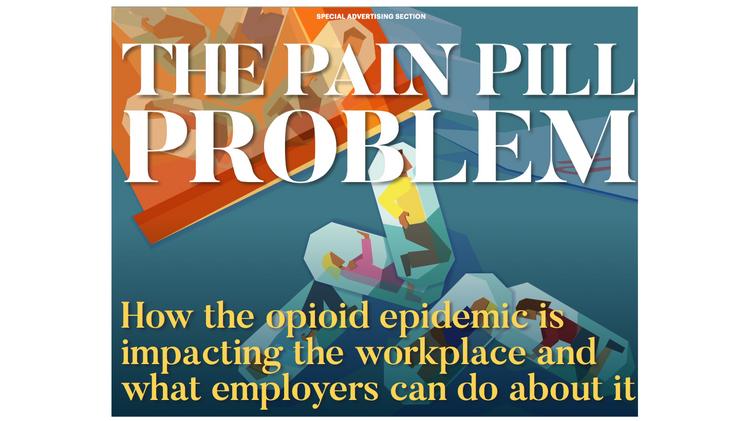
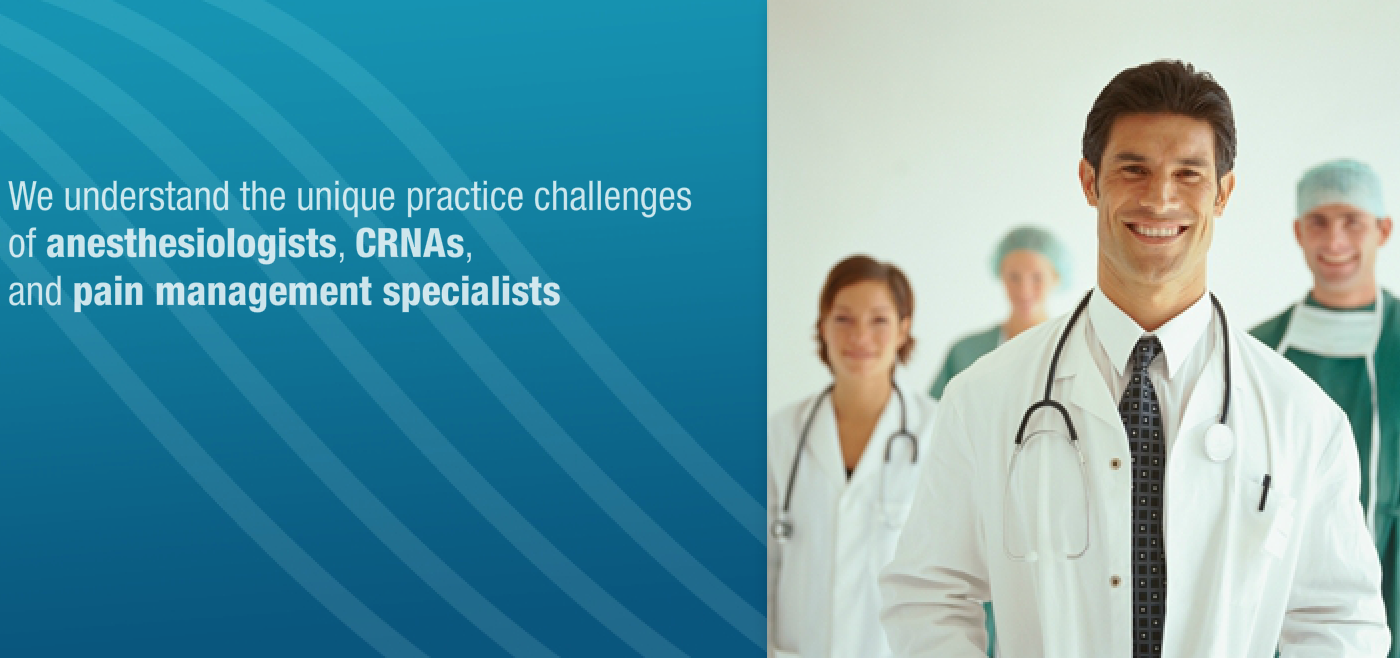
The role of the anesthesiologist in a rapidly changing healthcare environment is evolving. Beyond the management of complicated and hazardous peri-operative pharmaceutical regimens, the continuum of care needs a procedure that unites primary care physicians, subspecialists, and ancillary providers that comprise the modern healthcare delivery system. The need for pain management during and after surgery often introduces patients to narcotic pain medications, for which the inherent difficulties of managing are an acutely important issue. An individual’s genetic profile affects the way their body interacts with many medications. Having a prior knowledge of a genetic profile can predict poor outcomes and help avoid dangerous, even life-threatening complications of medical management.
The anesthesiologist is well-positioned to take an active role in deploying the highest level of evidence-based, personalized medicine through the use of pharmacogenetics. By using PGx- based tools, anesthesiologists can model risks and complications to reduce harm and improve peri-operative outcomes. Caretuit is uniquely focused on providing a tool for reducing the immense complexity of the information and recommendations for peri-operative medication management in a workflow-friendly, provider-oriented format.
Partnered with Coriell Life Sciences and PGx Lab, we offer an advanced commercial peri-operative risk assessment tool for: pre-operative medication optimization, intra-operative risk assessment, and post-operative complication prediction and patient handoff. We utilize a proprietary panel of peer-reviewed pharmacogenetics markers to accomplish these goals. Building upon a foundation of clinically relevant pharmacogenomic variants, we also include markers that identify the risk of malignant hyperthermia and opioid dependency. Additionally, as an increasing number of surgeries are allowed in the ambulatory setting, a risk-stratification tool based on the prediction of post-operative complications may play a role in deciding the best treatment setting for individuals.
As of January 2018, The Joint Commission (JHACO) has released a new requirement for health systems to meet in order to address the issues of Opioid misuse and contraindication. JHACO has issued their guidelines within the following 4 areas of requirements.
- Developing personalized care plans with patients, family caregivers and care team.
- Assessing risk for patients and existing protocols.
- Assess and manage pain minimizing risk with treatment
- Manage data to monitor performance

